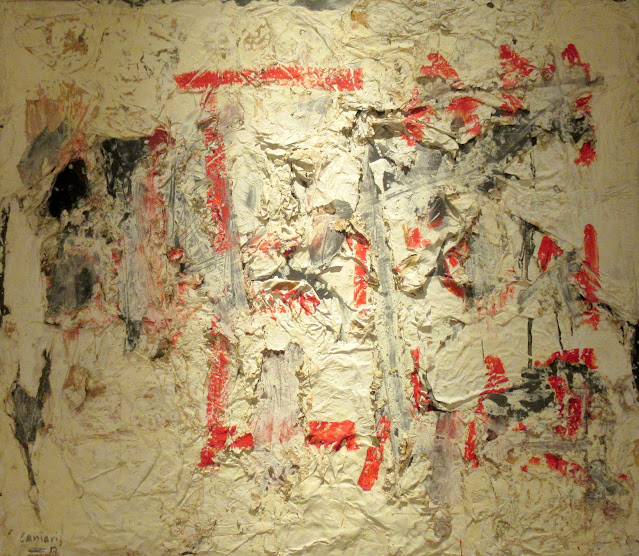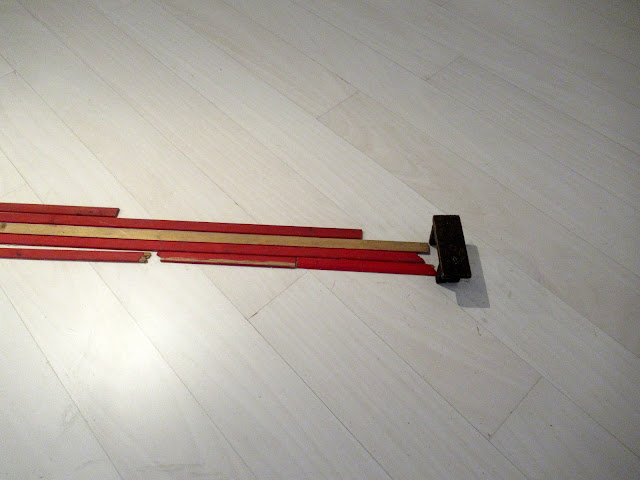National Museum of Contemporary (EMST)Art in Athens.
I just finished publishing a number of posts which are part of the What if Women Ruled the World? group of exhibitions. The majority of the large EMST building underwent a re-hang of its permanent collection so that the work of women artists could be presented. Only one floor was left intact and it includes work of both women and men, and this is the content of this post.
looking closer - unfortunately I was not able to find out what and who this was referring to
Artist and activist Emily Jacir investigates unknown historical narratives and their role in shaping collective memory. For this work Jacir invited to her studio volunteers from different countries, including Palestinians and Israelis, in order to embroider on a UNRWA refugee tent the names of the Palestinian villages that were destroyed by Israeli expansionism. The creative procedure (sewing with a needle and black thread collectively by a group of people) is a reference to the collective trauma, and the tent itself becomes something more than an art object; it becomes a site of inclusion and participation.
Dimitris Alithinos, A Happening, 1973, (plaster, wood, tape recorder, lamp)
An artist with a powerful social and political discourse, Kokkinidis started the series And regarding the remembrance of evils... 1967-1997 as soon as the military dictatorship in Greece was imposed in 1967. Starting from the photos of uniformed officers that filled the press at the time, he records the dramatic events of the time on some packaging cardboard he found in a corner of his studio. Most of the series had been completed by December 1967, but the works remained hidden in the studio; some of them were first shown to the public thirty years later, in 1997, at the Astra gallery.
Vlassis Caniaris, Homage to the Walls of Athens, 1941-19... (mixed media on canvas), 1959

Mona Hatoum, Fix It, 2004, (factory fixtures and furnishings, programmable lighting equipment, electric cable, incandescent light bulbs, sound)
Fix It is an in-situ installation created in 2024 as part of the Intercultures exhibition at the EMST. The Palestinian-born Mona Hatoum visited Athens and collected old and rusty industrial fittings and fixtures from the old FIX brewery prior to its restoration as the EMST's permanent base. She set up metal grid to form a fenced area in which electric bulbs switch and on and off producing a buzz. The work has many contrasts - light/darkness, decline/rebirth, order/chaos.

Kostis Velonis, At the End of the Demonstration, 2009, (wood acrylic)

Kostis Velonis, At the End of the Demonstration, 2009, (wood acrylic)
Despina Meimaroglour, East of Eden, 2000, (6 prints on high-gloss paper)
An article about a trafficking case where six women from countries of Eastern Europe were sold as slaves to countries in Western Europe was the trigger for this work. Meimaroglou combines elements from photographic portraits of women gathered from fashion and lifestyle magazines, to study the construction of beauty standards with the literal commercialisation of the human body.



























No comments:
Post a Comment